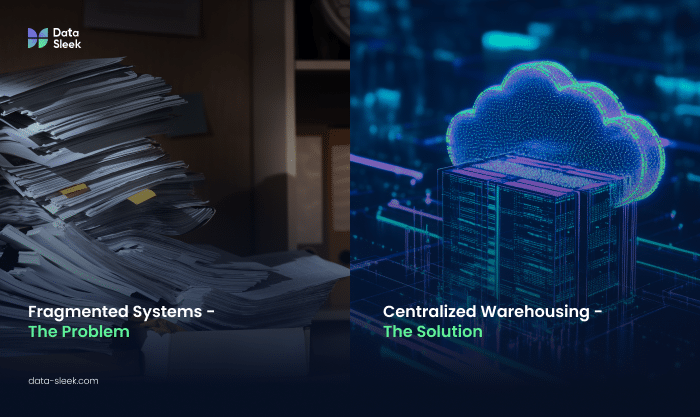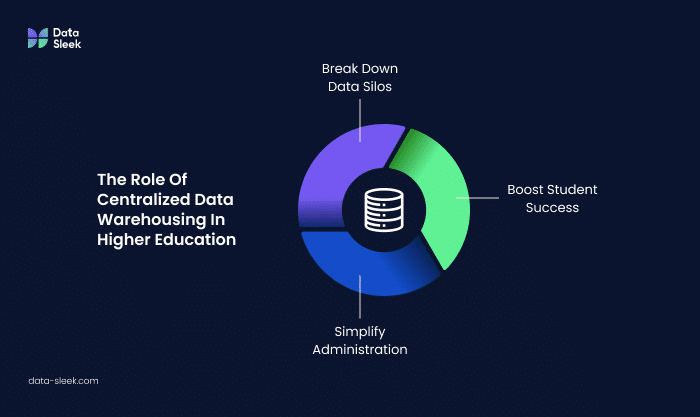The Role of Centralized Data Warehousing in Higher Education
1. Eliminating Data Silos for Improved Collaboration
When data is stored in multiple, isolated systems, departments operate independently, often duplicating efforts and working with incomplete information. A centralized data warehouse consolidates data from various sources, allowing faculty, administrators, and researchers to access a single, accurate version of institutional data.
This unified approach enables:
• Better cross-departmental collaboration by providing a shared data repository.
• Faster decision-making with real-time access to key performance metrics.
• Reduced redundancies in data entry and processing, saving valuable time and resources.

2. Enhancing Student Success Through Data-Driven Insights
With a centralized data warehouse, universities can leverage analytics to track student performance, engagement, and retention patterns. By analyzing historical and real-time data, institutions can identify at-risk students and implement targeted interventions to improve academic outcomes.
Key benefits include:
• Personalized learning experiences through adaptive course recommendations.
• Early-warning systems to support students who may be struggling.
• Data-driven advising to help students stay on track toward graduation.
3. Streamlining Administrative Processes
From financial aid distribution to faculty workload management, administrative processes in higher education require accurate and efficient data handling. A centralized data warehouse simplifies these operations by automating data integration and reporting.
Institutions can:
• Optimize resource allocation based on real-time enrollment trends.
• Improve compliance with accreditation and regulatory reporting requirements.
• Reduce operational costs by minimizing manual data management tasks.

Why Cloud-Based Data Warehousing is the Future of Higher Ed
Cloud-based data warehousing solutions offer scalability, security, and flexibility that traditional on-premises systems cannot match. With cloud technology, universities can:
• Scale storage capacity as data volumes grow.
• Ensure data security with built-in encryption and access controls.
• Enable remote access for faculty, administrators, and researchers.
Take the Next Step Toward a Data-Driven Future
A centralized data warehouse is more than just a storage solution—it is a transformative tool that empowers higher education institutions to operate more efficiently, improve student success, and make informed decisions based on accurate, real-time data.
Is your institution ready to break down data silos and enhance its data strategy? Contact Data Sleek today for a free consultation and discover how our higher education data warehousing expertise can help you achieve your goals.







